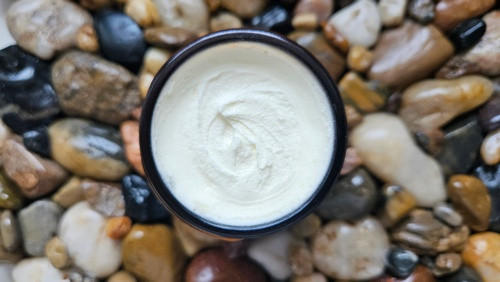Policy Makers are Holding us Back
posted on
March 22, 2020
Ontario's supply management system restricts the number of hens that farms like Jubilee can keep. We're allowed only a small flock (99 hens to be exact), which prevents us from scaling up and making a profitable business out of our eggs. We're also allowed only "farm gate" sales (with “farm gate” being defined as the location where the hen laid the egg) because our eggs are not graded. This really restricts accessibility for customers.
So why don’t we just have our eggs graded? Because grading stations are a long way from here and it's not worth the trip for such a small number of eggs. Even if there were a grading station close by, they’d laugh at small farmers like us who requested their service. Small quantities are just not worth it, for them or us.
But if ungraded eggs are supposedly “unsafe", then why am I allowed to sell my ungraded eggs at my farm gate? What happens to my eggs en route to a farmer's market or one of our pick-up locations that suddenly makes them unsafe for sale?
We'd also prefer not to have our eggs washed (which also happens when eggs are graded). All eggs come out of the chicken with a natural protective coating called a “bloom”. The bloom seals the pores of the eggshell and protects the egg from harmful bacteria and moisture loss. If your eggs have dirt or grass on them, there’s no need to worry as the egg is safely sealed by the protective bloom. You only need to wash them just before you eat them.
But washing at the grading station strips eggs of their natural protective barrier long before they're ready to be eaten. Not only must graded eggs be washed, they're often bleached. Eggs are porous without their bloom so this is troubling. In Europe, it's actually illegal to sell a washed and sanitized egg precisely to avoid the destruction of the bloom. This encourages good animal care on farms.
Folks, our laying hens out on pasture produce a completely different product from the eggs in the grocery store. It is rare for us to get a dirty egg out of our coop. When this happens, we keep that egg for home use or we wash and sell it as a refrigerated egg. But in general, there is simply no need for our eggs to be washed, and that’s why we’d be reluctant to have them graded.
Now if you want a CFIA (Canadian Food Inspection Agency) stamp on all your eggs to certify that they have gone through the industrial food fraternity, that's up to you. We're not asking for that program to be shut down. All we want is for Canadians who honour heritage foods to have the right to buy the kind of eggs they want from a farmer they know and trust.
I’m concerned that even writing about this might provoke the “egg police” to show up at our door. And they are scary! We have farming friends who've recently had their farm raided and it was terrifying for them. Police blocking the roads and eight police cars pulling into their farm. Storming the farm/house and confiscating all computers/laptops for investigation.
We need to increase the number of our hens to:
--> Meet our local demand for eggs (For several years now we haven’t been able to meet the burgeoning demand.)
--> Keep up with our sanitation program (Our hens follow three days behind the cows, scratching through the cow patties for fly larvae and fertilizing our soil as they are rotated through the pasture. Unfortunately, 99 hens is not really enough to do an optimal job if we were to expand our herd which we hope to do in the future. Check out the first video below to see our hens.)
--> Keep the cost down for our customers. We'd have to charge a ridiculous amount to make a decent profit on our eggs right now, but I really believe eggs should be affordable for people. But how long can we keep funding this enterprise? If we could scale up, we could make a profit. It would probably create another job for someone on the farm, and we could keep our egg costs down for customers.
If you really think about it, it's the kind of business where you can be brilliant and do everything right, but still be held back by the system. The Egg Farmers of Ontario (EFO), an organization made up of quota-holding producers, are the ones who deal with government on behalf of all egg farmers—even those like us, whose hands they tie with absurdly low limits.
Do you think the EFO wants to see us small pasture-based farms grow? Not on your life. They see us as a threat. The fight is REAL, folks, and it's political. It's about money and control, and has NOTHING to do with food safety.
This is what we are told by large-scale egg farmers here in Ontario: "It's not safe for your hens to be outside." But that's why we have a guard goose and livestock guardian dogs.
Or they tell us: "Your hens could catch a disease from another wild bird." No, that doesn't happen. Our birds have strong immune systems from living in their natural environment and from getting sunshine....maybe YOU should give that a try.
Then they try: "What happens when another farm comes along and offers eggs for half your price?" Well, first, they'd go out of business pretty fast because they couldn’t make a profit at that price any more than we can; and second, you could apply this absurd logic to any other business. Don't open that restaurant because another restaurant might come along and take your customers. So what? That’s free enterprise. It’s no reason why we shouldn’t have the freedom to try out our plan.
Here are a few farms in the U.S. that do exactly what we would like to be doing.
First up is Seven Sons Farms in Indiana. The second video shows their winter hen management. I’m including this for customers who wonder what we do in the winter with our hens—although our hoop house is much smaller ;)
Up Next is Joel Salatin of Polyface Farm in Virginia

Up next is Nourished By Nature in North Dakota

Why didn’t the Fathers of Confederation give us explicit freedom of food choice in Canada’s constitution? I suspect it’s because they could not imagine a day in which citizens would be prohibited from buying pasture-raised eggs at a market. This is tyranny! We're supposedly fighting tyranny around the world with our military, but meanwhile our own Canadian Food Police send SWAT teams out to small farmers to prevent families from being able to eat the food of their choice.
So what do you think, friends? Would you support 1,000 laying hens for Jubilee? Join our quest to set small farmers free so we can provide you with easy access to truly pasture-raised nourishing eggs!
Please keep us small farmers in your prayers— we have a big fight ahead of us.




